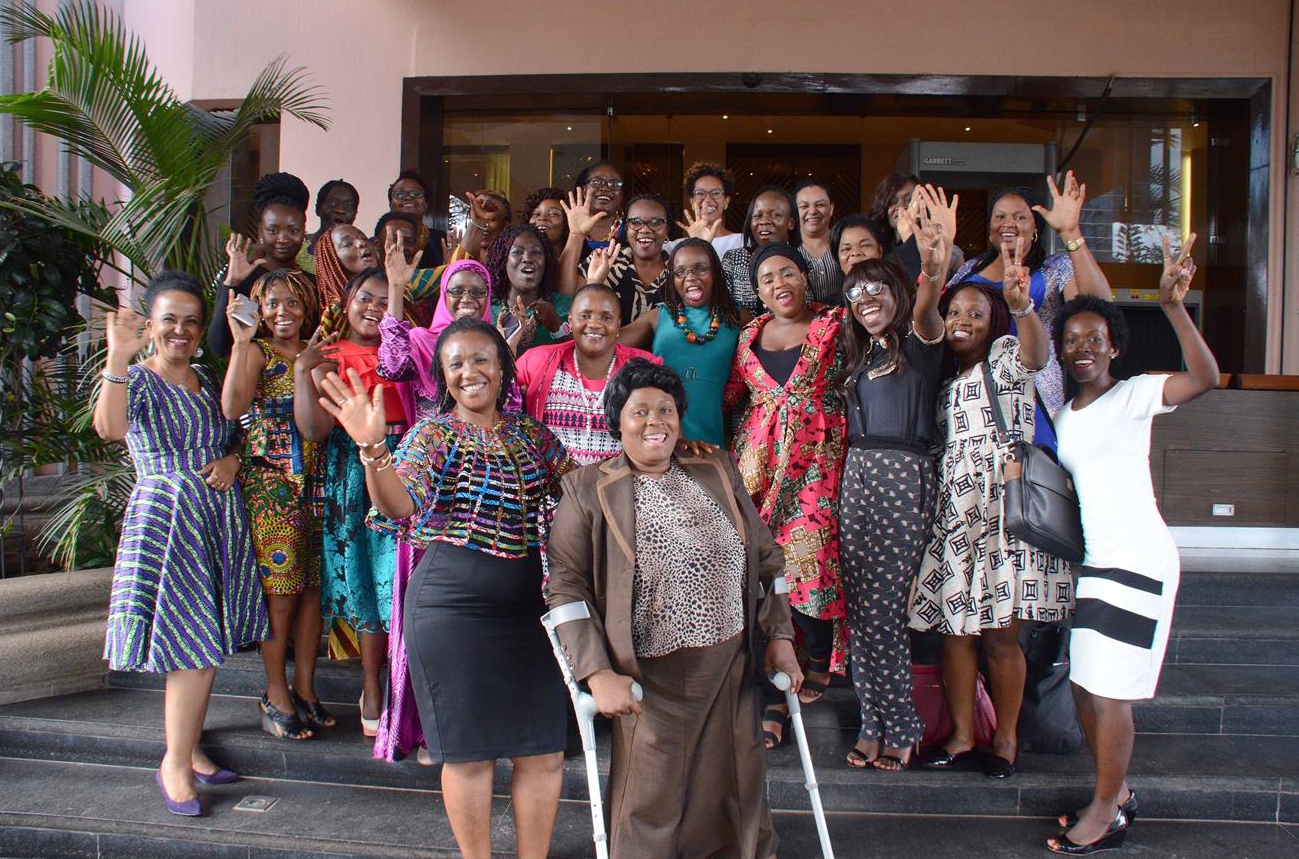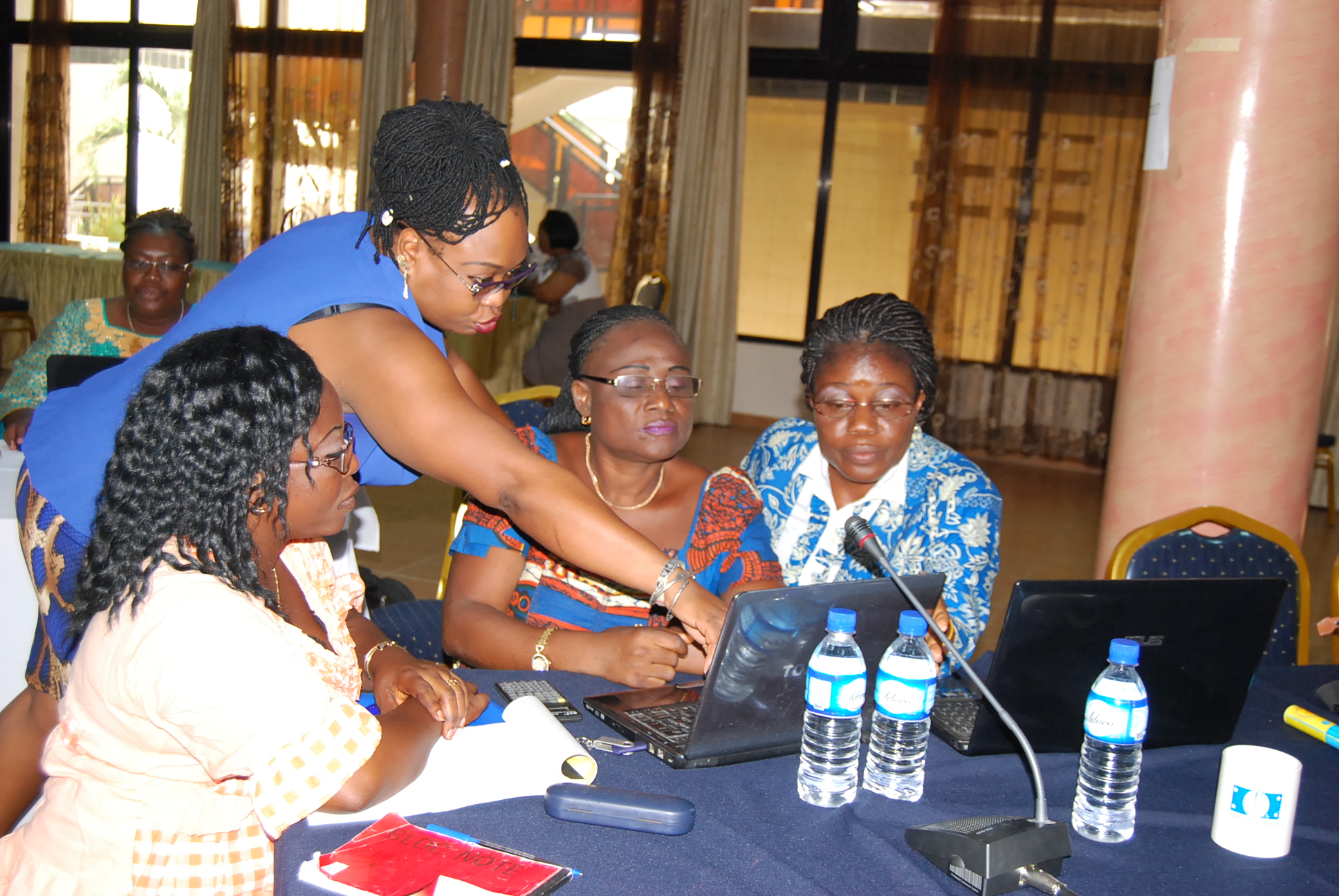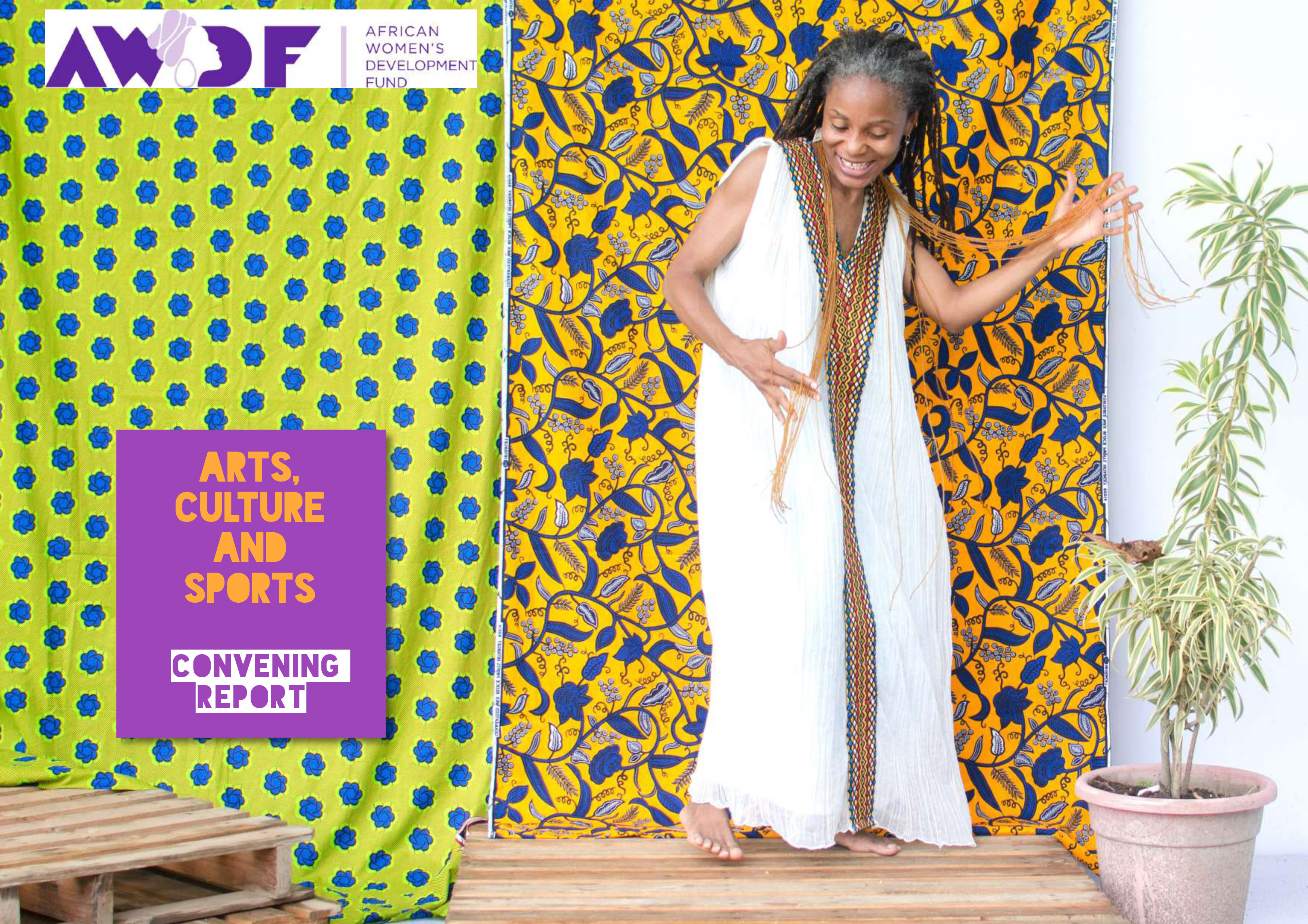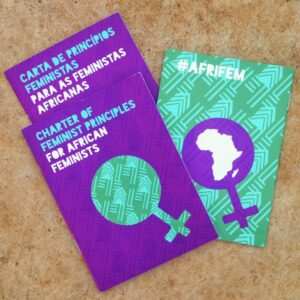Category: new
6th CEO Forum Report
6th CEO Forum Report

AWDF’s leadership development and coaching programme is aimed at building a cadre of African women leaders with feminist consciousness to promote women and girls’ rights in Africa. This programme targets young African women leaders because they represent our future, and deserve our investment in their human capacity development to enable them engage effectively as our leaders on women’s rights issues.
This 6th CEO forum, like previous years, is the first event of the intensive nine-month leadership coaching project. The forum is a unique space to inspire and encourage leaders to focus their minds on the coaching process and activities and embrace the new changes that will come from this experience for the benefit of their organisations and communities. The forum is also a space where leaders for the first time meet and interact with coaches assigned to them, engage and network with stakeholders on the project, question and agree on strategies on the way forward. As leaders embark on this important journey, we encourage them to be bold, courageous, conscious, and to take care of self and community and stand in solidarity with fellow women and girls.
Recognition Survey 2016
Recognition Survey 2016
Since its inception in 2001, AWDF has supported over 1200 women’s organisations in 42 African countries to work on critical issues that is of great importance to women on the continent. These organisations are doing remarkable work and have earned recognition, and influence in their localities / communities, countries, in the continent and beyond. Such recognition has taken various forms, including certificates of recognition, awards or commemorations, invitations to seek leadership roles, invitations onto committees and other decision-making bodies, donations of resources such as money, land, and materials among other things. To this end, aside grantees project reports, site visits etc, AWDF conducts a recognition survey annually to ascertain the recognition and reward grantees have received as a result of profound impact they are making in the lives of women and the continent at large. To achieve this, online questionnaires were sent to 149 organisations (139 Anglophone and 13 Francophone) supported in 2014. A detailed findings of the analysis of the survey are presented in the chapters below.
Recognition Survey Report 2015
Recognition Survey Report 2015
The African Women’s Development Fund (AWDF) conducted a Grantee Recognition Survey in February, 2015 to collect information on the recognition and influence attained by grantee partners and stakeholders in Africa as a result of the remarkable work that they are doing. To do this, a questionnaire was sent to 102 grantee organizations in Anglophone Africa and 24 organizations in Francophone Africa that were provided with grant in 2013. Responses were received from 54 organizations in Englishspeaking Africa and 8 organizations in French-speaking Africa representing a response rate of about 49%. The report is available below.
Renforcement Des Capacites, Redaction de Document de Projects et Rapport de Projets
Renforcement Des Capacites, Redaction de Document de Projects et Rapport de Projets

Les organisations de femmes connaissent à fond les barrières socioculturelles qui entravent l’égalité entre les sexes et l’autonomisation des femmes et sont en mesure de mener des actions pour aborder ces sujets selon leurs forces financières. Elles ont de bonnes idées mais n’arrivent pas à les exprimer clairement et de façon cohérente pour susciter l’intérêt d’un bailleur de fonds. Or l’architecture des financements pour les activités de défense des droits de la femme et les exigences des bailleurs de fonds est devenue très complexe. Il s’agit malheureusement d’une réalité dans le monde des financements que les organisations de défenses des droits de la femme doivent accepter et s’adapter à ce système afin d’accéder à des financements et produire des rapports pertinents.
RENFORCEMENT DES CAPACITES, REDACTION DE DOCUMENT DE PROJETS ET RAPPORT DE PROJETS
Arts Culture and Convening: Report
Arts Culture and Convening: Report

The culture industries of our world have historically been dominated by men and the African continent is no exception.
Women’s engagement in arts, cultural production and sports has led to the transmission of radical ideas, beliefs and attitudes. Women’s participation in cultural economies, also speaks to the immense value and contributions of women and invigorated connections and possibilities for communities across the continent and world. Through arts and sports, women have challenged and broken stereotypes, amplified the demands of women’s and feminist movements, raised resources, and spread messages of social change. Arts, culture and sports are critical sites for social transformation and movement building.
In spite of this work, women practitioners in arts, cultural production and sports face persistent restraints from intimidation, harassment, and theft of work to isolation, immobility, burnout and limited access to networks of care, support, and resources of sustainability. By working through a lens of intersectionality, African women are in a key position to speak out against multiple oppressions – gender, sexuality, disability, race, class, ethnicity, geography, etc. – within their fields of work.
Now more than ever, women practitioners are in a unique place to enable deeper engagement with and mobilisation of new constituencies of people, particularly young women.
Read more about this incredible convening which brought together artists from all over the continent to rethink artistic space, activist work and the intersections of the two.
The African Feminist Charter
The African Feminist Charter

The African Feminist Charter has a new look and is now available in different languages including Wolof, Arabic and Kiswahili. Find them below.
More will be posted here when they come available!
AFF Feminist Charter: Português
Health and Safety Manual
Health and Safety Manual
This guide is for African Women’s Development Fund (AWDF) grantees and other women’s rights organisations working in agri and food processing. Its goal is to provide important information on food health and safety practices that you can put into practice. When you do this, your business will get a good name. More people will want to be your customers. Your business will grow and you will earn income for your livelihoods.
We all use, process and sell food in our own different ways. But there are certain rules about food safety that apply to us all. We must make sure we manage our businesses in a safe way so that we don’t have injuries. And so our customers get healthy food.
This guide:
• explains how food gets contaminated
• tells you what signs to look out for
• shows how to prevent food you work with from making people sick
• offers tips and check lists to help you manage health and safety at work
• offers some activity ideas and ways to share this important information.
Find the entire guide here: Health & Safety Manual
BASELINE SURVEY REPORT: AMPLIFYING THE VOICES OF GIRLS AND YOUNG WOMEN IN GOVERNANCE.
BASELINE SURVEY REPORT: AMPLIFYING THE VOICES OF GIRLS AND YOUNG WOMEN IN GOVERNANCE.
By Regional Network Of The Children and Young People Trust (RNCYPT) with support from African Women’s Development Fund (AWDF)
The Amplifying the Voices of Girls and Young Women in Governance project is a ten month African Women’s Development Fund (AWDF) funded initiative that is implemented by Regional Network of the Children and Young People Trust (RNCYPT). The project began in December 2015, and the baseline study was conducted in January-February 2016, by means of Questionnaire and focus groups discussions; and covered targeted project areas that are Chinhoyi, Chitungwiza, Kadoma, Mvurwi and Raffingora.
Unlocking the Doors. Feminist Insights for Inclusion in Governance, Peace and Security
Unlocking the Doors. Feminist Insights for Inclusion in Governance, Peace and Security
By: Dr. Awino Okech
This is the third in a series of three African Women’s Development Fund (AWDF) primers entitled Feminist Perspectives on Governance, Peace and Security. The primers are intended to:
1. Offer a review of the major debates on women, governance, peace and security in Africa.
2. Review and analyse women’s movements’ interventions in governance, peace and security.
3. Offer a set of policy and advocacy priorities based on political and practical realities.
4. Benefit women’s rights activists, organisations and people in government at the frontline of local and national mobilization initiatives seeking to enhance women’s leadership.
5. Assist in building alliances and structuring support across various institutions working towards enhancing women’s political participation.
This is the third primer in the series. It analyses the successes and gaps in women’s movements’ approaches to the intersections between governance and the security complex. These insights are based on AWDF’s analysis of some of the major challenges confronting movement building in the areas of governance, peace and security. With these primers, our objective is to re position feminist politics as a fundamental expression of accountability to our cause and constituencies, and to provide an opportunity for advancing individual and collective learning.
Gender and Security in Africa
Gender and Security in Africa
By: Dr. Awino Okech
This is the second in a series of three African Women’s Development Fund primers entitled Feminist Perspectives on Governance, Peace and Security. The primers are intended to:
1. Offer a review of the major debates on women, governance, peace and security in Africa.
2. Review and analyse women’s movements’ interventions in governance, peace and security.
3. Offer a set of policy and advocacy priorities based on political and practical realities.
4. Benefit women’s rights activists, organisations and people in government at the front line of local and national mobilisation initiatives seeking to enhance women’s leadership.
5. Assist in building alliances and structuring support across various institutions working towards enhancing women’s political participation.
This primer reflects on women’s peace activism and gendered security in Africa. It explores the following interlinked questions: What factors drive women’s peace activism? Who are the major actors that women peace activists target? What are the key lessons that can be drawn from these interactions? This primer begins by tracing the evolution of debates and activism on gender and violence.
Secondly, it highlights national, regional and international policy frameworks that have emerged out of this activism. Finally, the primer draws on a few peace building initiatives led by women’s rights actors across the continent. We hope the lessons highlighted here offer a basis for building alliances and structuring support across various institutions working to enhance women’s peace activism.
